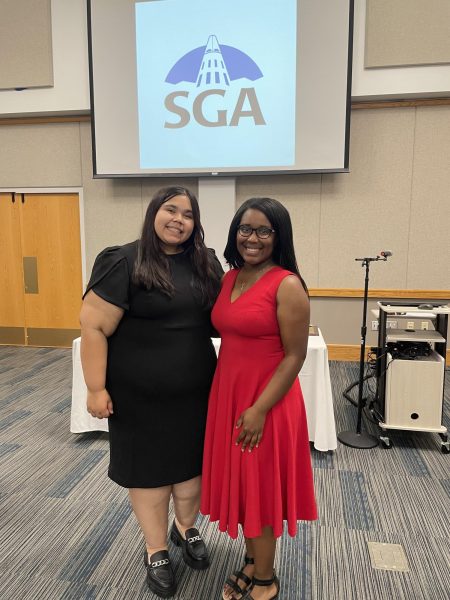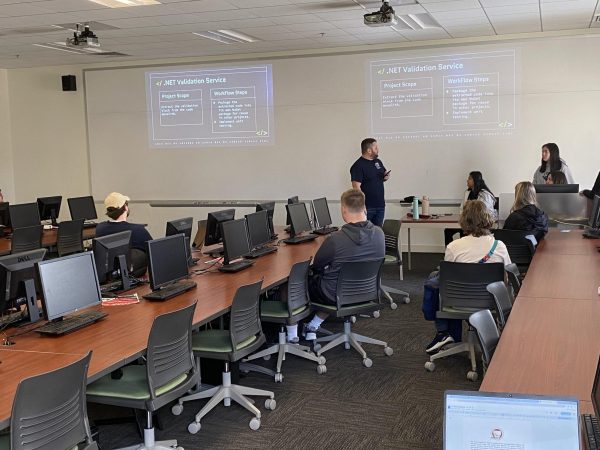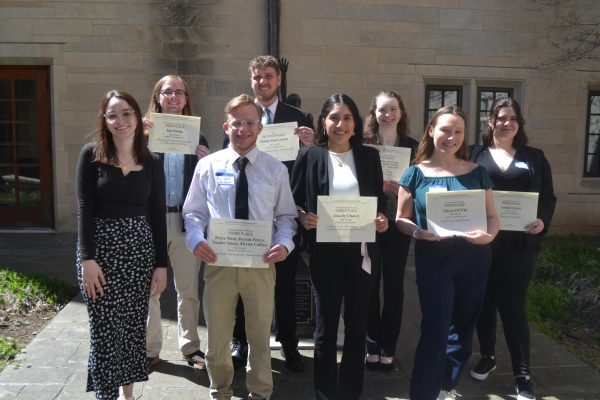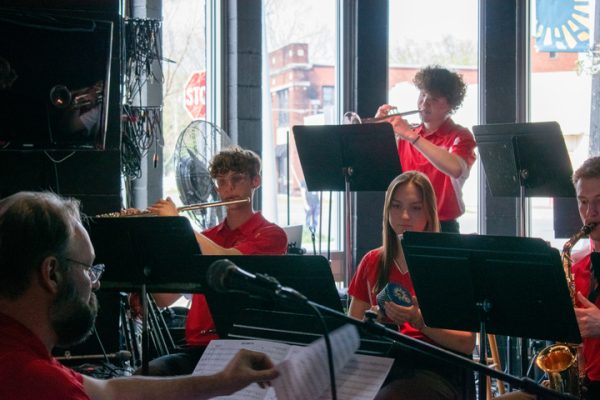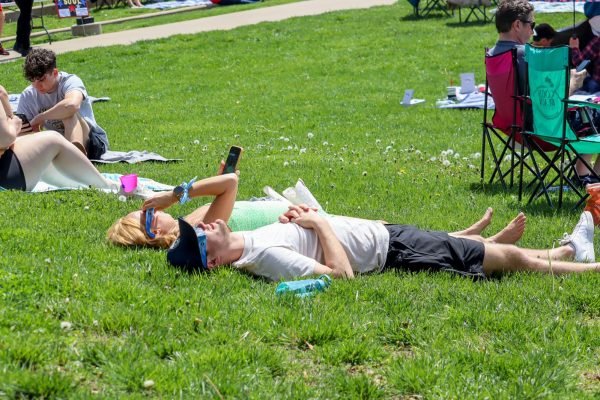From punches to pressure points
Campus self defense classes see low turnout
The students exchanged wide eyed looks when Sgt. Bobby Wood of the Princeton Police Department announced it was time to learn pressure points.
No one stepped forward to get hands-on experience until the instructors became the test dummies.
The students winced as they practiced on each other with thumbs pressing in the soft area behind the ear.
The pressure-point technique was one of many taught this fall in a university session focusing on sexual assault prevention.
Catherine Champagne, the assistant director of Student Wellness, coordinates the sexual prevention and awareness programs for university students.
“I have seen more interests across the board in prevention,” Champagne said.
Champagne assists in planning some of the sexual assault prevention and awareness programs, including the self-defense class.
Throughout the academic year, the university offers nine programs related to sexual assault awareness and four dealing with prevention. Those four programs are bystander intervention training, self-defense classes, healthy relationship screening and the public safety escort service.
Student turnout has been low with little advertising being done to promote the classes.
The final exercise was the one which was most exciting for Champagne. The instructors taped all the student’s wrist and one after another they tried to escape.
“It was really empowering to figure out that you can break out of duct tape,” Champagne said. “The class blew my mind.”
Each student rose their hands up and thrust downward to snap the tape and all but one succeeded.
“I loved every part of it,” Kaylie Walbert-Henry said. “It was great to be able to come down and practice the moves. You really feel that you know it and are able to defend yourself.”
Walbert-Henry said she hopes to be able to do attend a class like this again.
The bystander intervention training is offered by request only and the self-defense class operates once a semester, unless a further interest is shown.
The self-defense class is held once a month but not enough students signed up Champagne said.
She said she would like to bring more classes to campus if students show an interest in it. Last semester’s class contained twenty people, including both students and faculty.
The class has a minimum requirement of 5 participants.
Champagne said classes at the university have been canceled in the past due to low turnout.
The Panhellenic council contacted the self-defense instructor Wood about instructing classes for the fall. This isn’t the first time the Panhellenic council has reached out for a class and the turnout is usually around 20 people, Wood said.
Wood led the class through various defensive techniques from punches to pressure points.
The fitness room was largely empty with only seven students attending. Students in pairs held a large cushioned pad while the other stood ready to strike. Wood instructed them through kicks and punches.
Three instructors demonstrated the moves and worked with each group on fine tuning the movements and building comfort in attacking.
“I would like to see self-defense classes as part of core education, maybe once a week,” Wood said.
There are additional parts of the training that he does once people have attended a few times. One of those additions is a full body padded suit for more realistic experiences in using the techniques.
Advertising for the events is sparse. The self-defense class does not appear on the USI website or calendar and no dates appear for healthy relationship screenings either. Many of the students who came to the Panhellenic sponsored event were not aware that the Recreation Center was offering that same class later in the month.
More awareness based events are planned for the upcoming year, according to the Dean of Students Bryan Rush. Once the new awareness campaign is established, Rush said they are going to move into more prevention programs. He said he feels that awareness is a big part of prevention.
On average, 6.1 female college students out of 1,000 are victims of rape annually, and 1.4 male students out of 1,000, according to the Bureau of Justice Statistics (BJS). Only 20 percent of victims report the rape according to the BJS.
The university reported six sexual offenses in 2012, none in 2013 and two in 2014. The university’s enrollment for those years, including 2015 and 2016, has been over 9,000.
The University of Evansville has had similar turnout difficulties with their self-defense programs. It has a similar 2-1 ratio for awareness programs compared to prevention programs but have a sexual assault awareness or prevention program every month.
Two administrators at the University of Evansville in charge of sexual assault programs on campus are certified in teaching a self-defense course, Coordinator for Health Education and Wellness Programs Jamie Adams-Kemper said. She said the self-defense classes are offered once a semester and have a turnout of around 10 people.



